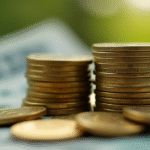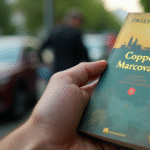Understanding Hate as a Cheap Drug
Hate is a cheap drug: each humiliation provides a moment of euphoria. However, the fear at its root only transforms when it is observed.
As Spinoza wrote, we do not hate because we understand; we hate because we fear losing what sustains our existence.
A Child’s Insight into Fear
I learned this from a child during an art session. He drew monsters that visited him every night, claiming they were always hidden behind the door. He feared being devoured by them and disappearing. By putting them on paper, he saw them differently: clumsy, ridiculous, with disheveled hair. He smiled; they were no longer a threat. Gradually, they became strange companions; eventually, he missed them: they were friends. They served as a way to talk to himself.
The Concept of Shadow and Banality of Evil
What that child showed me through his drawings is the same as what Jung called the “shadow.” Those terrors that we do not confront turn into hate.
Jung called it “shadow,” but Hannah Arendt spoke of the “banality of evil”: that dark side that flourishes in what is common and ordinary.
Art as Analysis vs. Hate as Disguise
Art performs analysis: it turns the monster into an interlocutor. Art is analysis. Pure hate, on the other hand, only disguises its enemy and makes it bigger.
Fear, the Unspoken, the Monstrous: Transforming Them
The unspoken, the banal, the monstrous: all of them return if we do not transform them.
Parallel Between Individual and Collective Psychology
What happens to an individual also occurs in nations. The logic is the same, whether it’s personal or collective.
I would like to know the fears each country’s leader harbors, see them dance as ridiculous ghosts. But I would never give them power. Naming them does not celebrate them; it disarms them.
Art’s Resistance Against Power
Art should not yield to power. When it does, it becomes an apology and loses its strength.
As an artist, I could never offer my voice to amplify that falsehood. That is called dignity and responsibility.
Hate as a Commodity
Hate is merchandise. It’s the most sought-after currency because it feeds on what is most primal in us as a species: fear.
We fear not subsisting, losing food, shelter, territory.
Politicians know this: they manipulate that fear like an invisible bank. They divide, polarize, and turn collective anxiety into electoral currency.
The Us vs. Them Illusion
“Us vs. Them” gives us a sense of belonging: a refuge, protection. But it’s an illusion.
When we discover that these discourses are empty and behind them lies only calculation and lies, the true awakening occurs: we leave our slumber.
Perhaps there, the possibility of building community in another way begins, without invented enemies, without splitting the wound into factions.
The Necessity of Anger
Anger is necessary: it’s my favorite emotion because of its transformative capacity that we need.
I do not suggest we should not express what we detest, what hurts us, what angers us. On the contrary: we should do so.
But what comes after that?
Hate Promises; Anger Builds
Hate promises; anger constructs.
Hate promises; anger creates.






